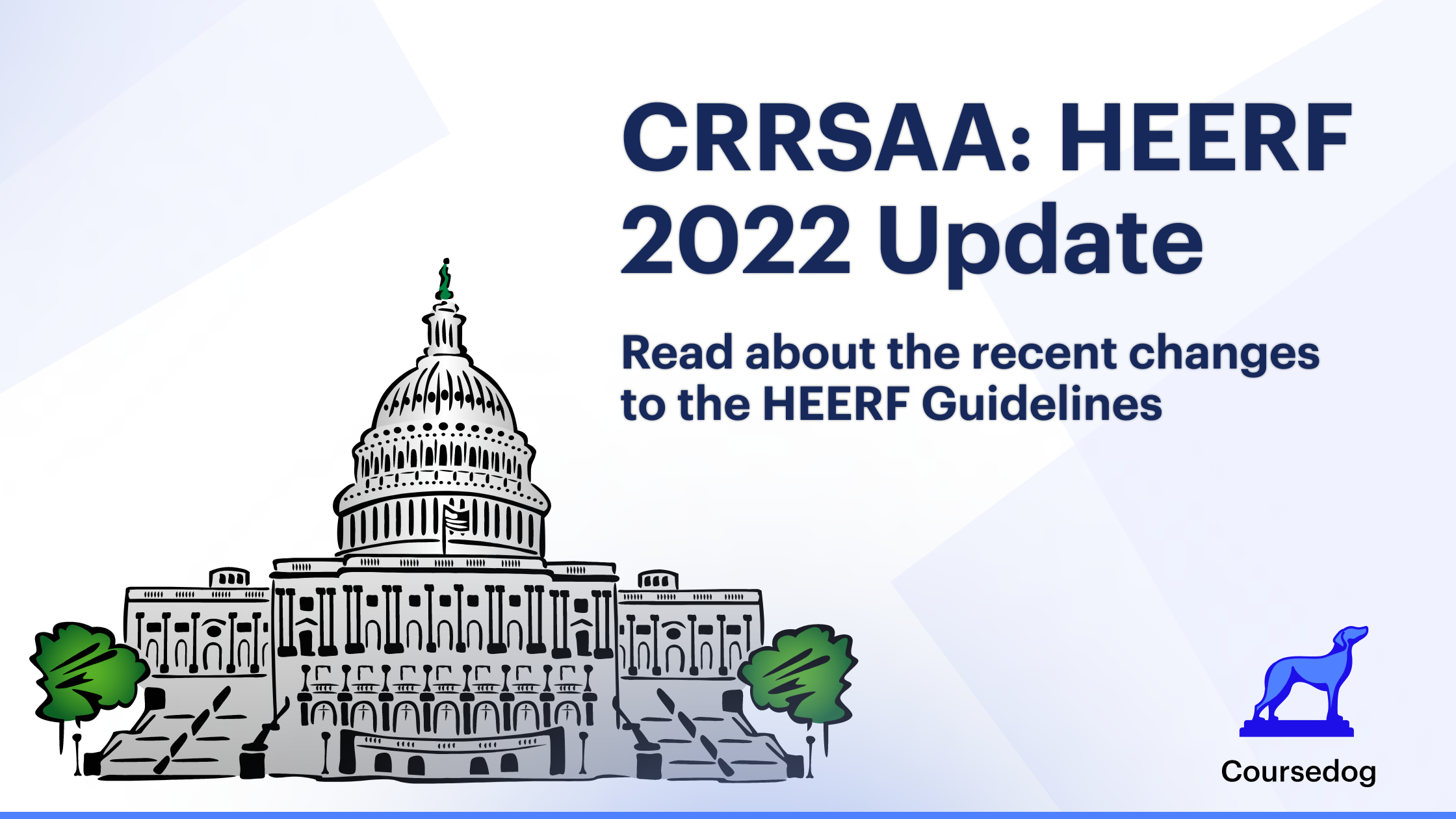The Future State of Higher Education with Doug McKenna from George Mason

Doug McKenna, University Registrar at George Mason University, shares how the future of higher education has taken on a new look. He discusses what it might look like in the future and how you can prepare.
What’s Changing. And What’s Not.
According to Doug, the future state of higher education, rebranded lifelong education, includes four things: societal prerequisites, program modularization, credential interoperability, and technology, which is interwoven throughout.
He also shared things that will remain the same. We were relieved to learn that there will continue to be: students, who will be called learners; faculty to teach, write, research, and create knowledge; and administrators, who are responsible for keeping track of all sorts of things. “Everything else, including the details, is up for discussion,” says Doug.
Societal Prerequisites
As Doug explains, “some pretty major things need to change to support the future of lifelong education.”
COVID is putting a serious strain on people’s and institutions’ finances. And because learners are carrying over a trillion dollars in student debt, the funding model simply must change. Lifelong education must be fully funded for all through taxes and public/private partnerships. “We must ensure those who can fund, make the necessary investment for the labor force needed to support future industry and to take stress off of learners and instructors,” he explains.
Regarding access and representation, Doug also notes that while women are currently the majority of graduates, women -- and people of color -- lag in leadership roles. Thus, we must increase access to lifelong education, which will lead to increased representation on campus at all levels of leadership.
Modular Learning
In the future, learners will have significantly more options, according to Doug. They can look forward to an increasing individually tailored learning experience – in both content and participation – down to selecting a module of a single class over an individually determined period of time and combining modules within a course or major. Focusing on a specific sets of problem statements at one time improves the breadth and depth of learner’s knowledge.
“This ties into an interoperable learner record supported by technology and reliant on the funding model,” he says. “But readjusting learning to enable this kind of learning and changing policy will be a challenge.”
.jpg)
From CLR to ILR: Electronic Artifacts
Doug also wants to rebrand what’s currently called a Comprehensive Learner Record (CLR) to reference interoperability (ILR). “The ILR is more than just an electronic transcript,” Doug explains. “It’s a combination of multiple datasets that enhance the understanding of learning outcomes and skills gained.” What’s more, it represents experiential learning and also includes micro-credentials.
Technology Will Make It Happen
“Intrusive and disruptive technologies will become pervasive and will be leveraged to support education,” reveals Doug. “Virtual reality will provide immersive experiences, and AI will assist struggling students in targeted, customized ways.”
In the future, highly integrated systems will support all aspects of the learning experience, and faculty will study and apply these technologies to maximize effectiveness. The same systems leveraged by administrators to record and document learners’ participation and achievements will support alumni matching, faculty research, and career placement.
In Doug’s brave, new world of higher education, dramatic change over the next 30 years will result in funding that will remove obstacles for access, equity, and representation. Learners will engage in more varied delivery models, while their achievements and experiences will be compiled in one interoperable learning record. And, of course, technology will play a critical supporting role.

Survey Results: Operational Roadblocks in Academic Affairs
Explore the results from a survey of 220+ higher ed leaders on the impact of academic operations inefficiencies on students and administrators.
Download Infographic



.jpg)
.jpg)
.jpg)

.jpg)
%20(1).png)









.jpg)































%20(1).jpg)








